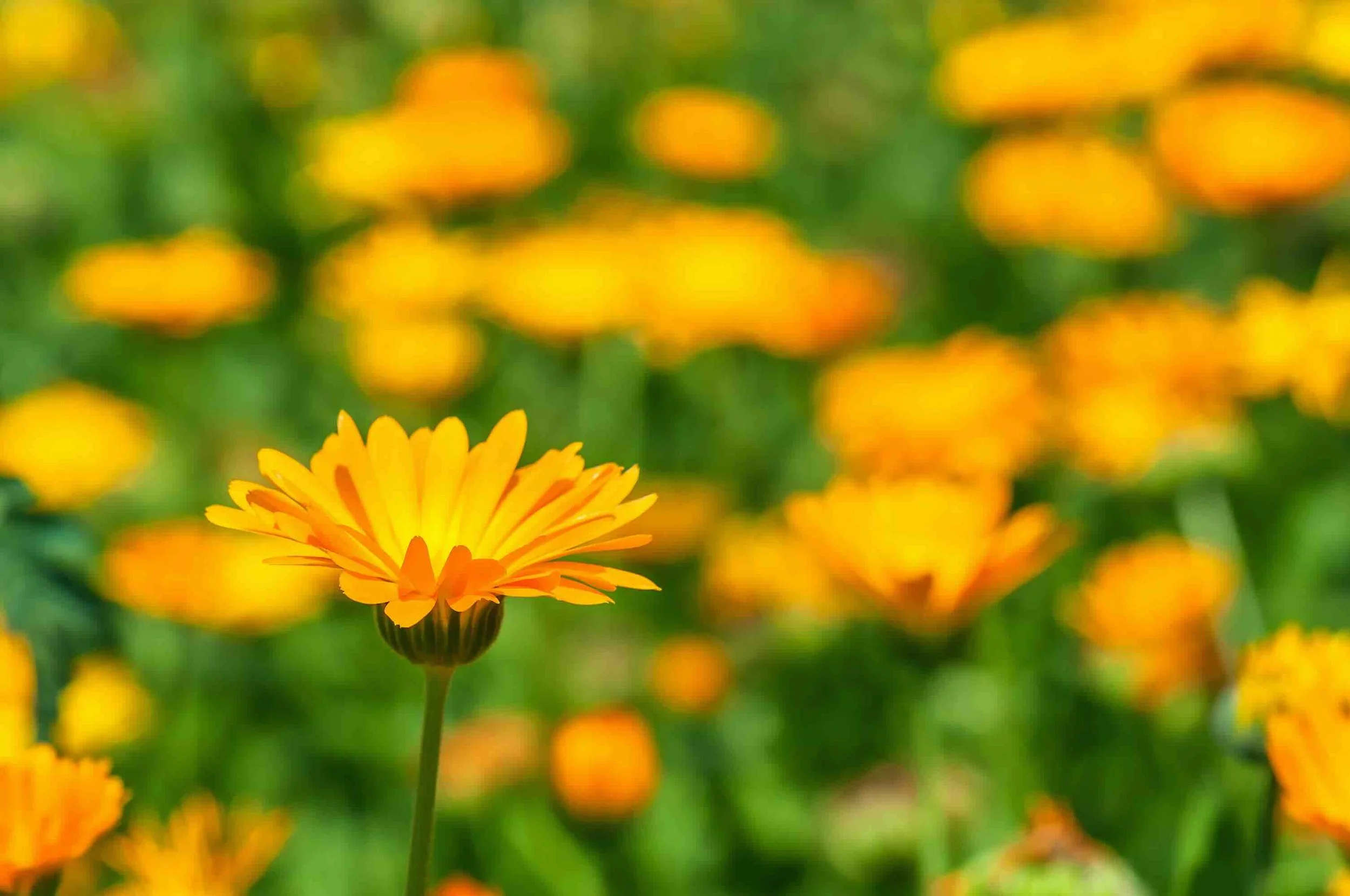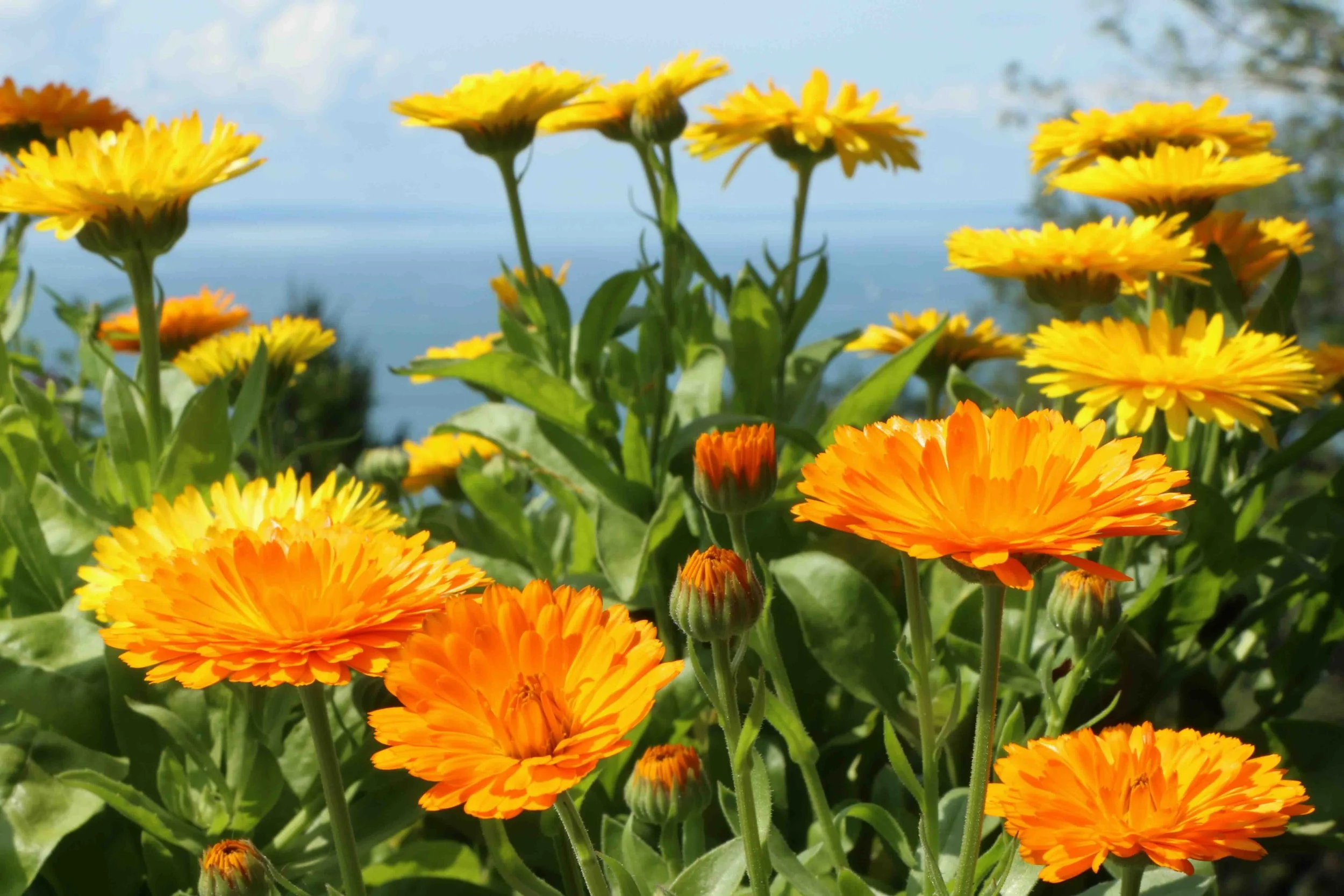
Marigold at the Shakespeare Garden
calendula officinalus
Apparently, many of the early poets were enamored with the marigold. This included Chaucer and Shakespeare. Esther Singleton writes, “Shakespeare was devoted to the marigold. He always speaks of it with poetic rapture.” Shakespeare does speak of the marigold six times, four of which are cheerful, comparing the opening and closing of the petals to the rising and setting of the sun. Twice the marigold is mentioned with respect to death. The scientific name of marigold speaks to its availability throughout much of the calendar year and the reliance on the marigold as a funeral flower. The flower also has a spiritual connection to Mary, Queen of Scots and Queen Mary, both important Catholic queens.
The marigold was an important culinary herb, finding its uses in soups, salads, pies, and even butter. It was often used instead of saffron. The marigold was also an important medicinal ingredient, producing ointment for the skin and lotions that treated sprains. It was said that the petals made a broth to comfort the heart. Culpepper, a botanist writing in 1653 called the marigold the “herb of the sun and under Leo” and gave it credit for strengthening the heart.
Marigold (calendula) is a hardy annual. It can be found in zones 2 – 11. The plant tolerates full sun and well-drained soil, but might appreciate some afternoon shade. The blossoms are bright orange to yellow and appear to open and close at the sun’s bidding. The bloom time in warmer climates may be only May to June, while in the cooler English climate, the bloom time would extend throughout the summer in to fall. Deadheading the blooms will extend the season. The leaves are fragrant and the plant attracts pollinators, but not rabbits.
(Note: The reference to marigold was the term use in Shakespeare’s time to describe what we now know as calendula.)
Shakespeare references to Marigold:
-
Perdita speaking:
The marigold that goes to bed wi’ the sun,
And with him rises weeping; these are flowers
Of middle summer.
-
The purple violets and marigolds
Shall, as a carpet, hang upon thy grave
While summer-days do last.


